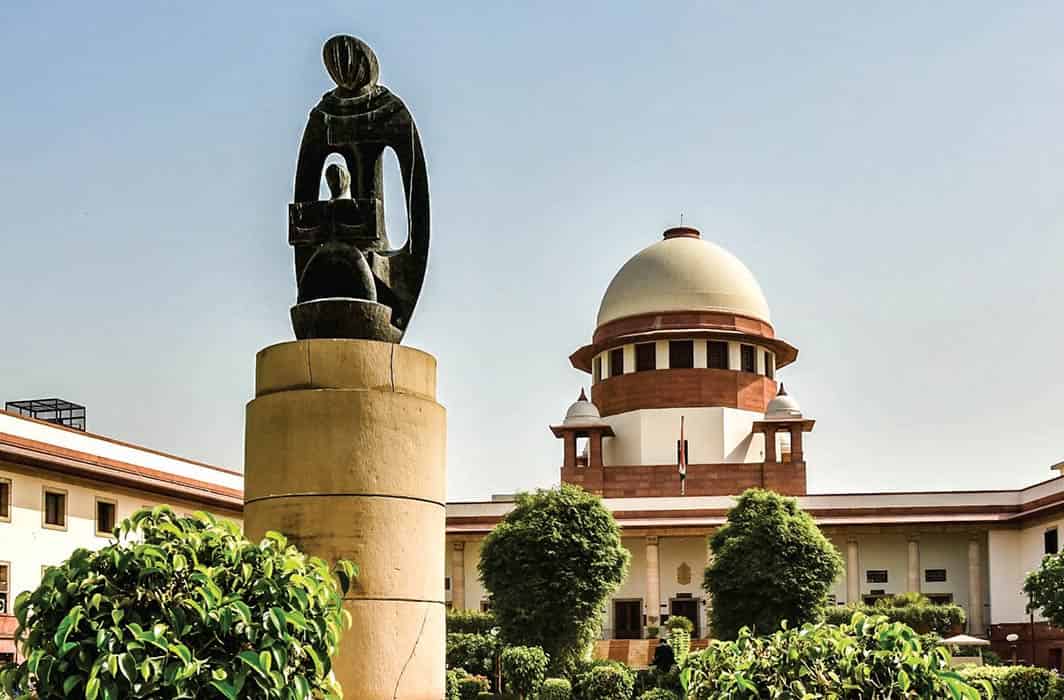New Delhi (ILNS): A plea has been filed in the Supreme Court challenging the validity of Sections 2, 3, 4 of the Places of Worship (Special Provisions) Act 1991, contending that they not only offend Articles 14, 15, 21, 25, 26, 29, but also violate the principles of secularism, which is an integral part of the Preamble and the basic structure of the Constitution.
The petition has been filed by Advocate Ashwini Kumar Upadhyay who has submitted that the Places of Worship (Special Provisions) Act 1991, has created an arbitrary irrational retrospective cutoff date, according to which “the character of places of worship-pilgrimage shall be maintained as it was on 15.8.1947 and no suit or proceeding shall lie in Court in respect of disputes against encroachment done by fundamentalist barbaric invaders and law breakers and such proceeding shall stand abated. If suit/ appeal/ proceeding filed on ground that conversion of place of worship and pilgrimage has taken place after 15.8.1947 and before 18.9.1991, that shall be disposed off in terms of S.4(1). Thus, Centre has barred the remedies against illegal encroachment on the places of worship and pilgrimages and now Hindus, Jains, Budhists, Sikhs cannot file Suit or approach High Court under Article 226. Therefore, they won’t be able to restore their places of worship and pilgrimage including temples-endowments in spirit of Articles 25-26 and illegal barbarian act of invaders will continue in perpetuity.”
It has further been submitted that the Maxim ubi jus ibi remedium has been frustrated by the impugned provisions, in which cause of action has arisen or continue and the remedy available to aggrieved person through court has been abolished thus violating the concept of justice and Rule of Law, which is core of Article 14.
The petitioner has further pointed out that right to judicial remedy cannot be taken away by State and power of courts, and particularly constitutional courts conferred under Article 32 and 226 cannot be frustrated and such denial has been held violative of basic structure of the Constitution and beyond legislative power. Moreover, it is necessary to reiterate that places of worship and pilgrimage is a State subject [Entry-7, List-II, Schedule-7]. Hence, Centre cannot make such law.
The petitioner has stated a number of reasons holding the Act void and unconstitutional
· offends right of Hindus Jains Buddhists Sikhs to pray profess practice and prorogate religion (Article25);
· infringes on rights of Hindus Jains Buddhists Sikhs to manage maintain administer the places of worship and pilgrimage (Article 26);
· deprives Hindus Jains Buddhists Sikhs from owning/acquiring religious properties belonging to deity (misappropriated by other communities);
· takes away right of judicial remedy of Hindus Jains Buddhists Sikhs to take back their places of worship and pilgrimage and the property which belong to deity;
· deprives Hindus Jains Buddhists Sikhs to take back their places of worship and pilgrimage connected with cultural heritage (Article 29);
· restricts Hindus Jains Buddhists Sikhs to restore the possession of places of worship and pilgrimage but allows Muslims to claim under S.107, Waqf Act;
· legalize barbarian acts of invaders;
· violates the doctrine of Hindu law that ‘Temple property is never lost even if enjoyed by strangers for years and even the king cannot take away property as deity is embodiment of God and is juristic person, represents ‘Infinite the timeless’ and cannot be confined by the shackles of time.’
Petitioner has further submitted that only those Temples Mosques Churches Gurudwara can be protected under the Act, which were erected /constructed in accordance with the spirit of personal law applicable to person constructing them, but religious places, erected/ constructed in derogation of the personal law, cannot be termed as place of worship. Thus, S.2(c) is arbitrary irrational and ultra virus and unconstitutional to the extent it abridges the right to religion of Hindus, Jains, Buddhists Sikhs protected under Articles 25, 26, 29.
Read Also: The pattern in the method: the curious case of a Chief Minister’s letter


